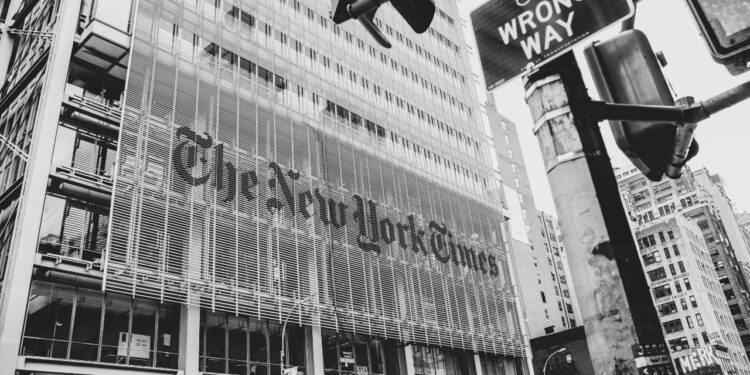The recent lawsuit filed by The New York Times against OpenAI and Microsoft could mark a notable turning point in the AI industry, with the suit potentially having a far-reaching impact on how AI is used in the workforce.
According to a report published by Fast Company, this legal challenge is centered on the alleged unauthorized use of the newspaper’s content to train AI language models like ChatGPT and Bing Chat (now known as Microsoft Copilot). Traditionally, language models have been trained on vast amounts of data scraped from websites across the internet.
These kinds of data and intellectual property concerns have led other media publishers and outlets, including The Associated Press and German-based media conglomerate Axel Springer, to negotiate new kinds of licensing agreements directly with OpenAI for use-of-content developed by their company employees and journalists.
This lawsuit is seen as pivotal in shaping the legal and ethical boundaries of AI technologies. As AI tooling and software becomes increasingly integrated into various industries, the clarity of data usage rights and intellectual property becomes more important as well. The outcome of this lawsuit could lead to more stringent regulations, impacting how companies train AI models and the kind of data they are allowed to use in that training — thereby influencing the trajectory of AI development.
The lawsuit may also prompt AI developers to reconsider their training methodologies, potentially leading to an increase in partnerships and licensing agreements between AI companies and media companies.
This case also highlights the tension between innovation and regulation in the tech industry. While 2023 witnessed rapid AI advancement, 2024 might see a slowdown as AI companies navigate these new legal complexities.
In terms of job market dynamics, the evolving legal landscape around AI could influence job roles, establishing a greater need for professionals skilled in legal, ethical, and compliance aspects of AI. It might also add to a demand for roles in AI ethics and data governance. For journalists and content creators, this lawsuit could be a turning point, potentially leading to new revenue streams through licensing agreements or reshaping the nature of content creation in the coming age inevitably guided by AI.
As AI’s capabilities and applications expand, so too will the legal and ethical debates surrounding its use. The outcome of this lawsuit could set a precedent, influencing how AI is developed and used across industries, ultimately shaping the future of work in an increasingly digital world.



 Dr. Gleb Tsipursky – The Office Whisperer
Dr. Gleb Tsipursky – The Office Whisperer Nirit Cohen – WorkFutures
Nirit Cohen – WorkFutures Angela Howard – Culture Expert
Angela Howard – Culture Expert Drew Jones – Design & Innovation
Drew Jones – Design & Innovation Jonathan Price – CRE & Flex Expert
Jonathan Price – CRE & Flex Expert












